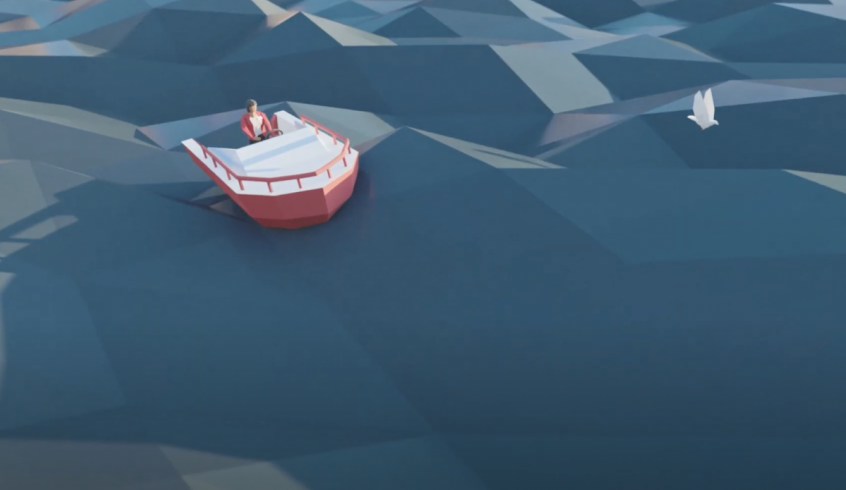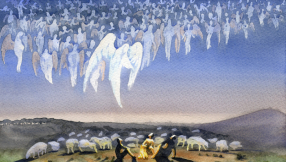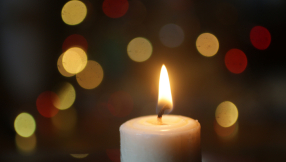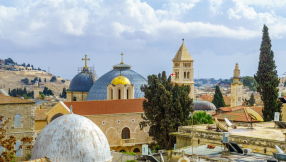
In 1928 John A Shedd released a collection of sayings titled "Salt from My Attic", and the following popular aphorism was included:
"A ship in harbour is safe, but that is not what ships are built for."
Can I let you in on a secret? I've been playing it safe. We've all had to stay safe these last few years. But it's not what we're built for. After a silly number of family and personal medical problems, I have needed to take proper time to heal and slowly reconnect with society. It hasn't always been easy, especially for an extrovert like me.
Are you now like me a bit more risk averse, a bit more inclined to stay home? I was listening to a retelling of the story of the Titanic recently. Boy, was it made for the sea (as many proud Belfast shipbuilding families will still tell you), but as we all know, as it turned out, the sea wasn't safe. But should that stop us venturing beyond the safety of the harbour walls?
As my new song, "Not Made For The Harbour", points out, the only reason we can have the nerve to sail out into the increasingly choppy waters of our world is that it is also the decision that God made. He intentionally made himself vulnerable through the incarnation. His response to the chaos and danger of planet earth was to sail into it, rather than stay cooped up in the safe harbour of heaven.
As church leaders deal with the reality of not just 1 sheep out of 100 being lost, but sometimes closer to 40 or 50 of their flock, will we just work even harder to make our old models work, or will we embrace the opportunity provided by this sea change? (pun intended)
I love to gather together with other believers. I'm a speaker and worship leader after all. But the COVID season has exposed the limitations of our gathered models of church, and now with less people and financial resource to continue putting on the best show(s) possible, many leaders I am speaking to are wondering what on earth to do.
Surely this moment in history gives us a chance for a reset. The writer Mark Greene has often pointed out that in every decade since the second world war, a different theologian has won the theological debate about the myth of the secular-sacred divide. Stott and Newbigin are just two examples. So in general the vast majority of the church has given intellectual assent to the idea that as the Dutch theologian and ex-Prime Minister Abraham Kuyper said, "There is not one square inch of creation over which the Lord Christ does not cry 'It is mine'".
In other words God is as concerned about what happens on a Monday morning in your workplace or home as he is about what happens on a Sunday morning in church building. He cares about taxation, healthcare, broadband and bins as much as canticles, carols, and a worship band. Those theological victories mean we all nod our heads and agree to that, but Mark Greene goes on to say, "even though that battle has been won, it has never led to a functional change in the church". For the most part, our staffing, financing, volunteering and resourcing choices sadly still reveal that we care much more about the church gathered than the church dispersed.
As it becomes more difficult to make the gathered as shiny as it was, perhaps we could allow what God has been doing out in our world to take its full place in the rhythms of our church life.
There are beautiful examples springing up all over the place of believers coming together who are invested in similar spheres or sectors of society. Whether it's those who are involved in politics in Leeds, the arts in Luton, or education in Bristol. Their longing is not just to provide a safe harbour for Christians in the midst of those industries, but to see that sphere of influence transformed, infused with kingdom justice and righteousness. Organising this has been previously hard to do, but here is some context as to another shift that makes this dream possible (and it's already happening!)
In any given town or city, even just a decade or two ago we would put on our annual churches together service, but if there are 15 churches in a town, there are 15 different ways to do a service, so we did a hymn to keep 'those folks' happy, a song to keep those other folks happy and some liturgy to keep those 'even more other' folks happy – they were piecemeal, rarely very satisfying experiences.
But as these same churches have come together powerfully in action, they have realised that even though there are 15 different ways to do a service, there is only one way to paint a playground or dig a garden.
Deep, long-term relationships have been built through the unity that only a shared task can bring. Here are the ready and able volunteer force staffing foodbanks, running evangelistic events and mentoring at-risk young people.
So back to our sacred-secular problem. At its heart this is actually a discipleship issue.
When you think about it, it's almost impossible for a local church leader to know enough detail about say politics or any of the other career paths represented in their congregation to be able to ask the right questions in support and challenge. The people who can are the other people involved in that particular area of work.
But in any given congregation there may be just 4 or 5 involved in education, 3 or 4 in business and maybe just 2 or 3 in politics. There isn't the critical mass to form a meaningful group for training, support and accountability. But across all the 15 churches in the town there absolutely is. These groups of Christians are organically springing up all over the country. Unity is being found again through a shared purpose. It's a beautiful thing. That flotilla of boats we see at the end of John Bowen's amazing video for the song represents the diversity of folks from different churches and backgrounds all heading out to the sea together.
We go out, knowing it's not safe, knowing we will face many practical and ethical challenges as we sail, but it's where the adventure is and together we might just as the song says see 'this worn world transformed'.
As with the viral hymn "We seek your kingdom" from 2021, the video for "Not Made For the Harbour" has been commissioned by LICC www.licc.org.uk and Thy Kingdom Come https://www.thykingdomcome.global who both resource believers to see transformation within their spheres of influence.
Chord charts, backing track, downloadable video with lyrics all available for free from www.licc.org.uk/harbour













